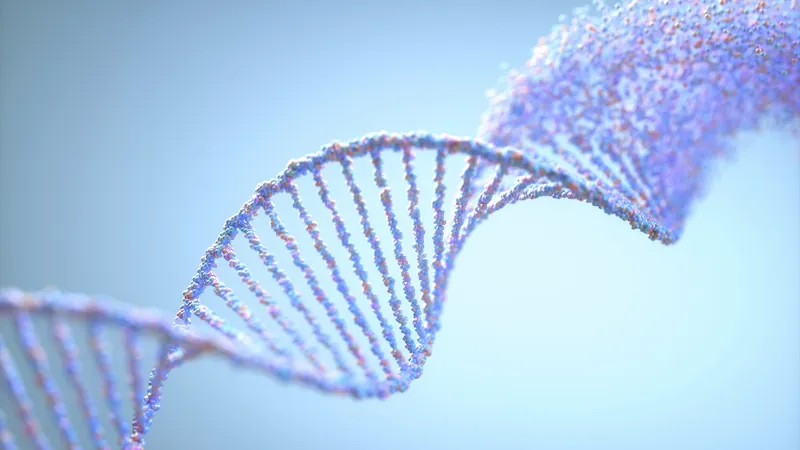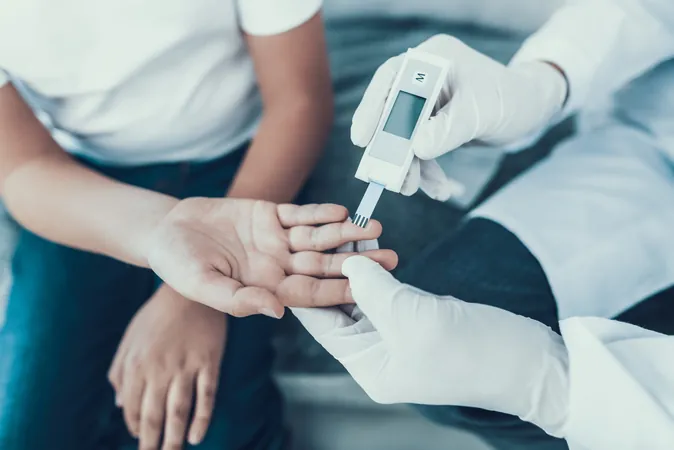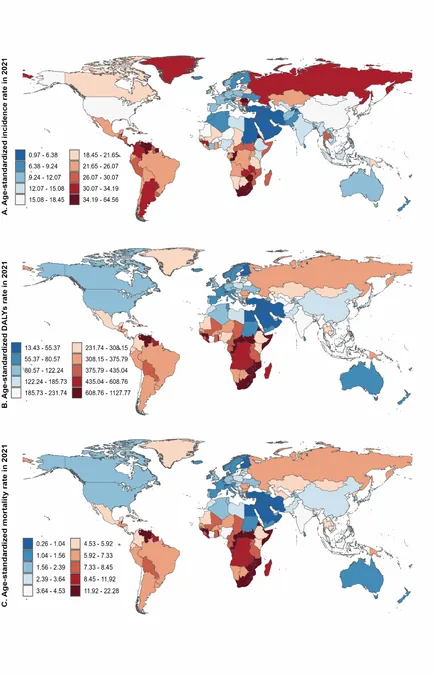
Unlocking the Mystery of PCOS: Could Epigenetic Changes Hold the Key?
2025-07-11
Author: Wei
A Family Affair: Understanding PCOS Inheritance
Scientists are inching closer to unraveling the mystery behind why Polycystic Ovary Syndrome (PCOS) tends to run in families. Recent groundbreaking research, showcased at the 41st Annual Meeting of the European Society of Human Reproduction and Embryology in Paris, suggests that disruptions in how genes are activated—commonly referred to as 'epigenetic' changes—could heighten the risk of developing PCOS. These alterations influence gene activity without modifying the underlying DNA, and intriguingly, they may be inherited.
A Glimmer of Hope for Prevention
This research shines a light on a potential pathway for preventing PCOS. For instance, if a woman is undergoing in vitro fertilization (IVF), there’s a possibility that harmful epigenetic markers could be detected in embryos and modified before implantation. Dr. Sherry Ross, a board-certified OB/GYN, mentioned that this could stop the condition from being passed down to future generations, though more studies are needed for safety and effectiveness.
PCOS: A Widespread Issue
PCOS is a hormonal disorder affecting an estimated 6% to 13% of women of reproductive age, according to the World Health Organization (WHO). Alarmingly, up to 70% of cases remain undiagnosed worldwide. Symptoms include ovarian cysts, weight gain, hair thinning, excessive body hair, acne, infertility, and irregular periods. Furthermore, individuals with PCOS are at an increased risk for serious health issues such as high blood pressure, type 2 diabetes, and endometrial cancer.
Genetics Play a Major Role
It’s widely acknowledged that genetics play a pivotal role in PCOS. For example, the Dutch Twin-Family Study revealed that identical twins, sharing nearly all their DNA, had a significantly higher concordance rate for PCOS than fraternal twins. About 20% to 40% of those affected by PCOS have a close female relative with the condition, yet the exact inheritance pattern remains somewhat elusive.
A Closer Look: The Study Behind the Findings
The latest study, led by Dr. Qianshu Zhu from Chongqing Medical University in China, involved around 230 women receiving IVF treatment—133 who had PCOS and 95 who did not. Researchers examined unfertilized eggs and pre-implantation embryos, searching for epigenetic markers—chemical tags that influence gene behavior. They discovered alarming 'disruptions' in crucial genes related to metabolism and early embryo activation in PCOS-affected individuals.
Future Directions: Embryo Safety and Selection
Dr. Zhu's research indicated that nearly half of the abnormal epigenetic signatures observed in three-day embryos were already present in the egg cells. This suggests that an epigenetic footprint is transferred from mother to embryo before implantation. By understanding these mechanisms, there is potential for innovative preventative measures against PCOS. The authors propose that modifications to embryos during IVF could significantly reduce the risk of passing on PCOS.
What Lies Ahead?
While this research opens doors to exciting possibilities, Dr. Zhu warns that these findings are based solely on lab-created embryos and do not yet demonstrate how these markers may affect actual children. His team is now initiating studies on mice to explore the implications for offspring.
As Dr. Ross emphasizes, this research underscores a genetic connection between familial cases of PCOS, paving the way for early diagnosis and intervention to prevent its transmission through generations.



 Brasil (PT)
Brasil (PT)
 Canada (EN)
Canada (EN)
 Chile (ES)
Chile (ES)
 Česko (CS)
Česko (CS)
 대한민국 (KO)
대한민국 (KO)
 España (ES)
España (ES)
 France (FR)
France (FR)
 Hong Kong (EN)
Hong Kong (EN)
 Italia (IT)
Italia (IT)
 日本 (JA)
日本 (JA)
 Magyarország (HU)
Magyarország (HU)
 Norge (NO)
Norge (NO)
 Polska (PL)
Polska (PL)
 Schweiz (DE)
Schweiz (DE)
 Singapore (EN)
Singapore (EN)
 Sverige (SV)
Sverige (SV)
 Suomi (FI)
Suomi (FI)
 Türkiye (TR)
Türkiye (TR)
 الإمارات العربية المتحدة (AR)
الإمارات العربية المتحدة (AR)